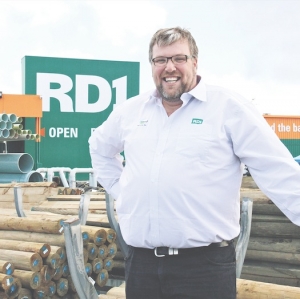“You will have a huge role in helping with cashflow management onfarm and ensuring we maintain the wellbeing of our dairy farmers,” he told the network’s annual meeting last week.
“The connection the Dairy Women’s Network has with our New Zealand farming families is very similar to the connection Fonterra aims at through Farm Source.”
He says in strategy it is important not to try to be everything to everybody because you won’t be successful. The Farm Source strategy is simple – around dairy farming, our Fonterra farmers and our place in the community.
It fits well with the choices DWN has made with its focus on its strategy of finance and cashflow, the work environment, the importance of farmer wellbeing, the role of compliance and the importance of developing and recognising talent. RD1 recently become the network’s major conference sponsor and major ‘gold’ partner.
“It’s important for us to have a relationship with what we truly believe to be one of the industry’s most prestigious networks,” Minkhorst says.
DWN chief executive Zelda de Villiers said subtle changes had been made to the network in the past year including in the management office. DWN now has just under 6000 membership; in the last three months they had added 300 members.
An important highlight in the year was the Pathways programme – collaboration between DWN and the Agri-Womans Development Trust. “It is a pilot programme aimed at developing the skills and confidence of dairy women to influence and lead positive change in their business and communities. The North Island programme will be launched on November 4 and 5 and the South Island pilot in May next year.”
While there are other rural leadership programmes available, this one is specifically for dairy women. A unique aspect is AgResearch will interview participants to see how the sessions are going and evaluate the process.
The trust developed the programme after the network and the trust consulted dairy women on what they needed to gain the confidence and influence onfarm and in the community.


















